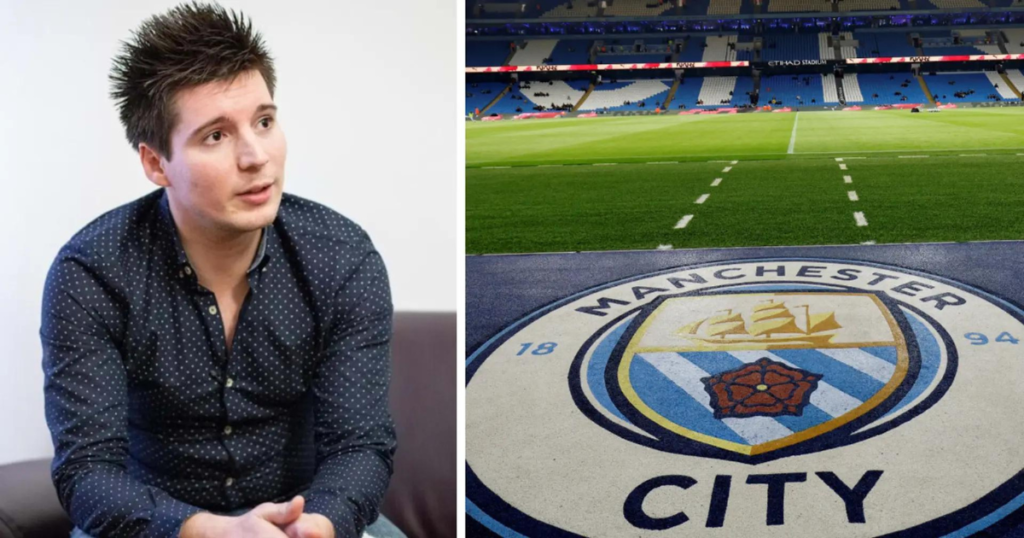The name Rui Pinto became associated with a seismic discovery in the football world. He identified a labyrinth of rule violations within the Premier League’s powerhouses as the hacker who exposed the Manchester City incident. From revealing UEFA rule violations that threatened the club’s profitability and viability to revealing its financial information, revenue figures, management and player compensation. But he paid a high price for his cooperation with the investigations—a prison sentence, charges, and imprisonment.
Now that UEFA’s judgement about a Champions League ban is in doubt. His future rests in the hands of the Lisbon Court of Appeal. Pinto was a modern-day whistleblower who dared to challenge the powerful with nothing more than his wits. When the hashtag #freePinto emerged, supported by Borussia Dortmund fans.
The Unearthed Secrets
Rui Pinto’s ascent to fame started with a string of illegal deeds, including breaking into servers and databases to steal private data. He found a wealth of data, including Manchester City’s closely held financial information. This information was essential for preserving the club’s sustainability and profitability. It contained information on revenue, manager and player compensation, and other matters.
UEFA Regulations and Rule Breaches
Numerous rule violations were revealed by the stolen information, shocking UEFA and its stringent rules. Questions regarding the club’s compliance with financial fair play regulations were raised when the financial differences between Manchester City and other clubs were made public. The club and UEFA’s reputation both suffered greatly as a result of this discovery.
The Champions League Ban
Manchester City was expelled from the Champions League for two seasons in February 2020 as a result of serious financial rule violations, according to UEFA. Football enthusiasts, notably supporters of Borussia Dortmund, rallied around Rui Pinto, perceiving him as a whistleblower. He had exposed corruption in the game of football. The hashtag #FreePinto quickly became popular on social media.
The Trial and Charges
The authorities took notice of Rui Pinto’s behaviour. He was detained in Hungary in January 2019 and later sent to Portugal for trial. He was accused of a long list of offences, such as hacking, tax fraud, and criminal behaviour connected to his hacking activities. The Portuguese government was adamant about prosecuting him.
Cooperation with Investigations
Pinto’s willingness to assist with inquiries gave the narrative an unanticipated turn. He volunteered to help the police by giving them details about his hacking activities and the data he had amassed. Many people struggled with the morality of his collaboration because he was essentially aiding the prosecution’s case against himself.
The Lisbon Court of Appeal
Pinto’s legal team contended that he should be protected by Portuguese whistleblower laws. He offers protection to those who reveal criminal conduct, as the trial progressed. In the end, the Lisbon Court of Appeal decided in Pinto’s favour, granting him whistleblower status and lessening his prison term.
UEFA’s Decision Revisited
UEFA reconsidered its judgement on Manchester City in light of Pinto’s status as a whistleblower and his cooperation with law enforcement. The team still had to pay a price for breaking the rules. But the suspension was shortened to just one season, demonstrating how Rui Pinto’s actions affected the state of football.
The Legacy of Football Leaks
The acts of Rui Pinto generated a wider discussion on the function of whistleblowers in contemporary society. His case highlighted the dangers and benefits of uncovering corruption, not only in football but in many other industries. The football community discovered that even in the most well-liked sport in the world. There are secrets that must be revealed for the welfare of society.
Conclusion
Rui Pinto, once known as a hacker, became a symbol of transparency and accountability in football. His actions, though illegal, exposed wrongdoing within one of the world’s most prominent football clubs, leading to a reevaluation of UEFA regulations. While his actions were controversial, they ultimately contributed to the ongoing conversation about the need for transparency and ethics in the sport we all love. The legacy of Rui Pinto, the whistleblower, continues to resonate in the football world and beyond, reminding us all of the power of truth in the face of secrecy.
